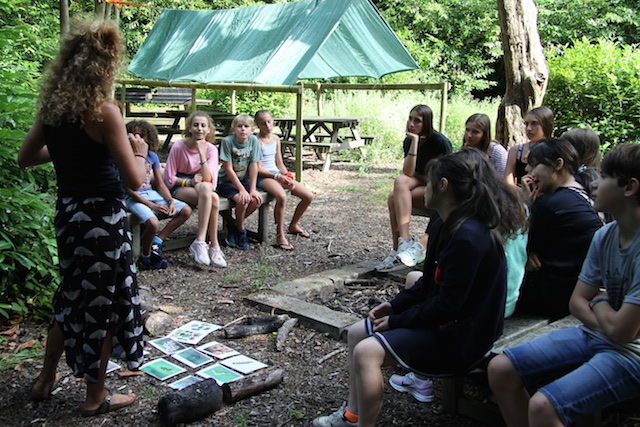How children influence parents on climate change

Outdoor learning nature studies at ECS
Who do we pitch to when we market our courses? The parent or the child? Traditionally he who pays the piper calls the tune. But good parenting will also increasingly involve children in decisions as they get older. Presumably there is a cultural variation in this. One can imagine for example that democratic Swedes would not consider sending their child to the UK without the active involvement and consent of the child. Whereas a child in another country might have no choice in the matter. As the child gets older, the decision making shifts increasingly to the child, always bearing in mind that the ultimate decision rests with the person paying for the course.
A recent study in America however shows the influence that children can have on their parents with regard to changing their perceptions - in this case about climate change. The North Carolina study found that middle school-aged students who learned about climate change were good at getting their parents to think differently about the issue. Conservative parents and fathers showed the greatest change in opinion, with daughters being slightly more effective persuaders than sons. The study involved a hands-on curriculum, where children learned about the local impacts of climate change; and they participated in fieldwork like collecting plankton samples. They also interviewed their parents about climate change - though without ever using the term - instead asking questions like, “how have you seen the weather change?” and “how will sea-level rise affect our community?” Parents of children on the course showed a greater difference in concern about climate change at the end of the unit than parents in the control group. In other words: parents’ change in concern can be attributed to their children. More information.
This has implications for ELT professionals as influencers and marketers. As influencers it means that the learning we impart to pupils around climate change might go further than we think, helping to persuade parents around the world of the need to act. As marketers, we need to be aware that children who care about climate change will be more likely to want to attend schools that show they care about environmental responsibility - and what's more they have influence over their parents on this! With at least one European country putting climate change and sustainability at the heart of learning in schools, UK English Language schools would be well advised to make sure that environmental responsibility is embedded into every part of their operation.

